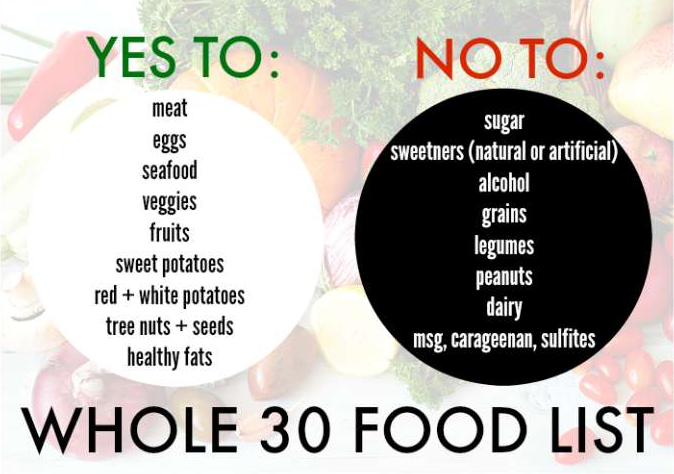What is Whole30 Diet?
The Whole30 diet is a popular 30-day program that involves eliminating certain food groups from the diet in order to “reset” the body, weight loss and improve overall health. The diet was created by Melissa Hartwig Urban and Dallas Hartwig, and was first introduced in 2009 in their book “It Starts with Food”.

How Does Whole30 Diet Work for Weight Loss?
The Whole30 diet is designed to eliminate foods that may be contributing to inflammation, gut issues, and other health problems. During the 30-day program, participants are asked to avoid the following foods:
- Sugar, both real and artificial
- Grains, including wheat, rice, corn, and oats
- Legumes, including beans, peanuts, and lentils
- Dairy, including milk, cheese, and yogurt
- Alcohol
- Processed foods and additives, including carrageenan, MSG, and sulfites
The diet encourages participants to focus on whole, nutrient-dense foods, including meats, seafood, eggs, vegetables, fruits, and healthy fats. After the 30-day program is complete, participants can gradually reintroduce the eliminated foods to determine which ones may be causing issues for them.
Why Whole30 Diet is Popular in The USA?
The Whole30 diet has gained popularity in recent years due to its focus on whole, unprocessed foods and its emphasis on eliminating potential food sensitivities. Additionally, the program’s short duration (30 days) makes it more manageable for some people than longer-term diets. However, it is important to note that the diet may be difficult for some people to follow due to its restrictive nature, and it is not appropriate for everyone. As with any diet, it is important to consult with a healthcare professional before starting the Whole30 program to ensure it is safe and appropriate for individual needs and health status.

